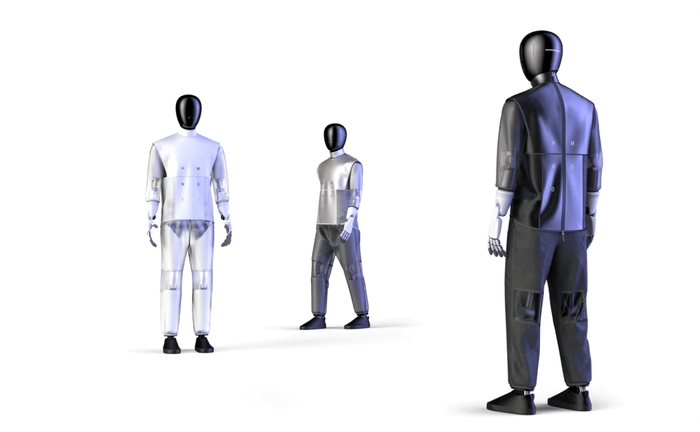8 Ways IoT, Embedded Technologies Power the 2024 Paris Olympics8 Ways IoT, Embedded Technologies Power the 2024 Paris Olympics
From flying taxis to digital twin technology, smart devices and more, embedded technologies can be found throughout the 2024 Olympic Games
.jpg?width=1280&auto=webp&quality=95&format=jpg&disable=upscale)
The 2024 Paris Olympics officially kick off Friday and the Summer Games will be supported by an array of IoT and embedded technologies enhancing the experience from athletes to spectators and organizers.
Here are some of the technologies on display at the 2024 Paris Olympics.
Digital Twins
The U.S. swim team will use digital twins to evaluate and improve race performance.
Ken Ono, a mathematics professor from the University of Virginia (UVA) and his team of students, created the digital twins of swimmers and have worked with U.S. swim team members August Lamb and Kate Douglass to test them ahead of the Paris Games.
The digital versions accurately replicate a swimmer’s movements and offer valuable insights to coaches.
The digital twins provide detailed information on drag force, a critical factor affecting a swimmer's performance. The technology allows athletes to make adjustments to their technique based on the data provided.
Air Taxi Cleared for Flight Demonstrations at Paris Olympics
German eVTOL (electric vertical takeoff and landing) vehicle developer Volocopter has been cleared to fly at the 2024 Paris Olympics.
The French government has also agreed to the development of a takeoff and landing facility to be called Vertiport de Paris-Austerlitz.
Only electric aerial vehicles (EAV) from Volocopter are authorized to use the new vertiport and conduct demonstration flights during the Paris Games.
Flights are being allowed from 8 a.m. until 5 p.m. with a limitation of two flights per hour and a total of up to 900 flights.
Read more about Volocopter’s plans for the Olympic Games >>>
Smart Device Combats Summer Heat
Athletes competing will face an unexpected challenge: warmer-than-average summer temperatures. To combat the heat, some Olympians are turning to a mitten-like device designed to keep them cool during competition.
Designed by Stanford University biologists Craig Heller and Dennis Grahn, the CoolMitt is a portable cooling product that offers the wearer a smart way to cool down for up to eight hours on a single charge.
To use, athletes place their hands on the water-filled pad inside the mitt, which is kept at a cool 50 to 53 degrees Fahrenheit. CoolMitt’s vasocooling technology circulates cooler blood back to the athlete’s heart and muscles.
Discover more about how the CoolMitt will keep athletes cool in Paris >>>
High-Tech Timekeeping
Swiss watchmaker Omega has been the official timekeeper of the Olympic Games since 1932. Omega plans to revolutionize the Paris Games with cutting-edge technology, including AI-driven computer vision cameras.
Omega has brought 350 tons of equipment to Paris to keep track of times during the event. Some 550 official timekeepers and on-site professionals will work across the 32 sports with support from 900 trained volunteers.
Omega has outfitted its timekeeping products with an array of sensors.
Specially designed starting blocks for runners have built-in sensors that measure an athlete’s force against the footrest 4,000 times per second. The integrated sensors feed the data to an on-site computer, informing race officials of potential false starts by up to a tenth of a second.
Discover more about Omega’s Olympic timekeeping >>>
Real-Time Traffic Tool Eases Congestion
TomTom’s specialized traffic index is offering visitors real-time, detailed insights into the city's road conditions.
The Paris Traffic Index not only monitors congestion levels but also tracks the total number of traffic jams, ensuring smoother navigation in the bustling city.
An interactive map provides detailed views of traffic flow in the city. The platform features accurate information on the time it would take to travel six miles.
Detailed graphs show congestion data from the last 48 hours and seven days, helping drivers understand better when roads are quieter to plan their journeys across the city.
Read more about how TomTom’s Paris Traffic Index will help visitors >>>
Transportation and Mobility
Toyota is providing mobility solutions at the 2024 Paris Olympics, including a fleet of electric vehicles to transport athletes to various venues.
The automaker is bringing 50 Accessible People Movers (APMs) to the Olympics specially designed for use in Paris. They will offer last-mile services and transport people with accessibility needs between venues.
It also unveiled a new wheelchair e-puller for the Olympic Games.
Toyota has converted traditional wheelchairs into battery-powered mobility solutions that provide greater freedom of movement for wheelchair users.
In line with the Olympic pledge to reduce emissions at the 2024 Games, Toyota is also providing 500 Mirai vehicles powered by hydrogen fuel cells.
The mid-size vehicles emit zero emissions, with water as the only byproduct. The vehicles generate power by combining hydrogen with oxygen from the outside air.
Find out more about how Toyota is bringing “Mobility for All” to the 2024 Paris Olympics >>>
Cloud-Based Broadcasting
Alibaba’s cloud division is providing AI-powered smart cameras to create dynamic, multi-angle replays and 3D models for broadcasters at the 2024 Paris Olympics.
Alibaba has been working with the Olympic Broadcasting Services (OBS) since the 2020 Tokyo Games, providing its cloud technologies to manage, store and distribute huge quantities of content from across the various events.
In Paris, Alibaba Cloud will deploy an array of AI-infused cameras strategically placed around venues to capture various points of action and create dynamic replays.
Read more about Alibaba’s cloud-based broadcasting at the Olympic Games >>>
Immersive On-Site Experiences
Intel will combine hardware and software products to power interactive fan experiences throughout the games, including a fan feature powered by Intel technology that allows fans to put themselves in an Olympic athlete’s shoes.
The immersive experience uses a combination of AI and computer vision to let fans compete in a series of athletics drills, analyze their performance and match them with an Olympic sport in which they might excel.
Accessibility Tools for Visually Impaired Spectators
Intel technology will also be used to support visually impaired fans.
The company used its AI technologies to create 3D models of Team USA’s headquarters, assisting visually impaired individuals with navigation through a specially designed smartphone app that provides directions and guidance.
The same technology was used to create a voice navigation tool for the International Paralympic Committee headquarters in Bonn, Germany.
Discover more about how Intel’s “AI Everywhere” is powering the 2024 Paris Olympics >>>
Read more about:
2024 Paris OlympicsAbout the Author
You May Also Like
.png?width=100&auto=webp&quality=80&disable=upscale)
.png?width=400&auto=webp&quality=80&disable=upscale)





